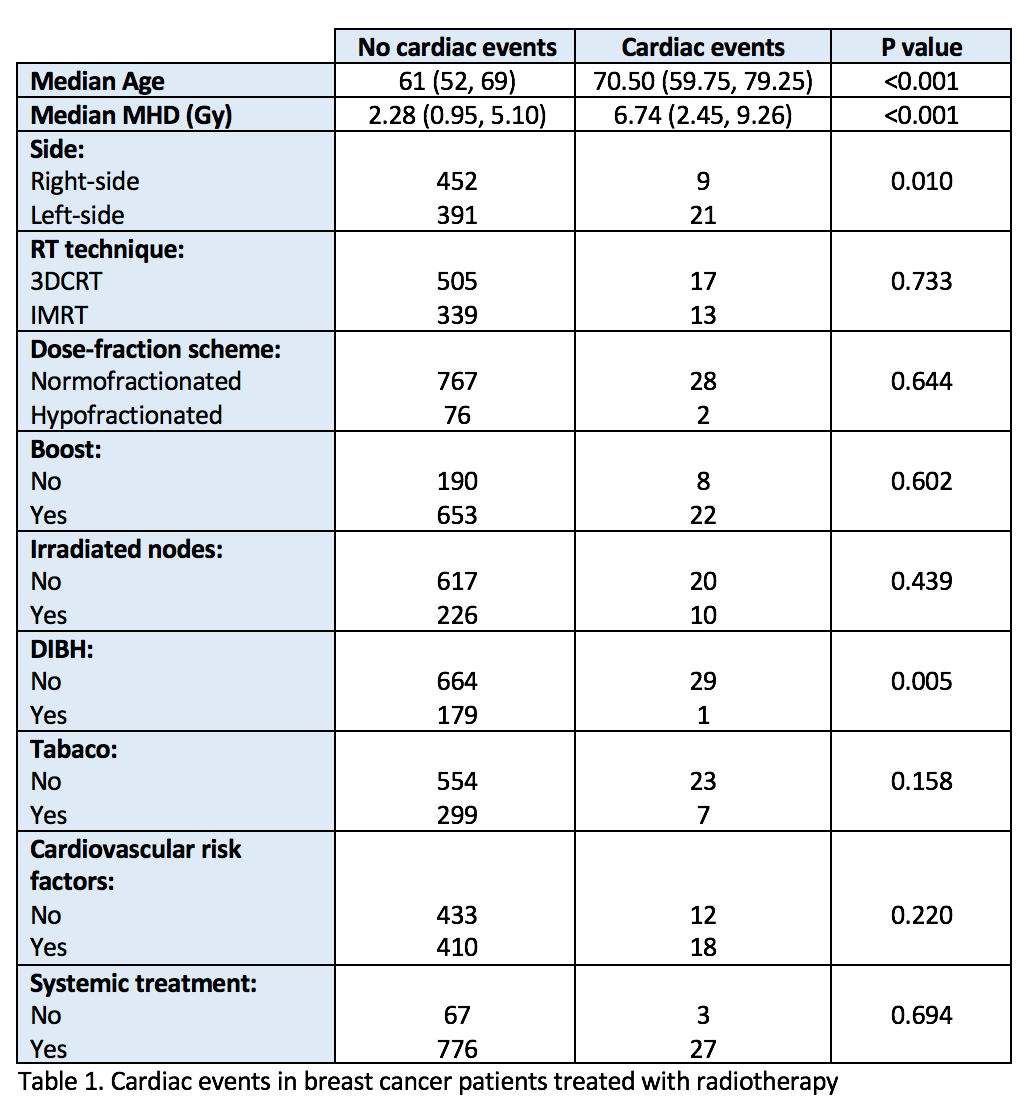Reduced cardiovascular events incidence in breast cancer patients treated with radiotherapy
PO-1256
Abstract
Reduced cardiovascular events incidence in breast cancer patients treated with radiotherapy
Authors: Eugenia Otero Pla1, Núria Jornet Sala2, María Josefa Fuentes Raspall1, Saba Jiries Rabi Mitre1, Josep Isern Verdum1, Agustí Pedro Olivé1, Jady Vivian Rojas Cordero1, Sonia Bermejo Martínez3, Fabià Surinach Pérez3, Gemma Sancho Pardo1
1Hospital Santa Creu i Sant Pau, Radiation Oncology, Barcelona, Spain; 2Hospital Santa Creu i Sant Pau, Medical Physics, Barcelona, Spain; 3Hospital Santa Creu i Sant Pau, Radiation Therapy Technician, Barcelona, Spain
Show Affiliations
Hide Affiliations
Purpose or Objective
To investigate the association of mean heart dose (MHD) and cardiac complications in breast cancer (BC) radiotherapy (RT) and the impact of using the deep inspiration breath hold (DIBH) technique.
Material and Methods
We analysed the RedCap Database for patients with BC treated with RT from 2013 to 2021. Information about cardiac events was obtained from the medical records. The majority of patients were treated with normofractionation. We investigated the association of dose, cardiovascular risk factors, systemic treatment, and RT technique. The statistical analysis was made with the SPSS Software and R statistics. We have performed bivariate analysis, for non-parametric variables with the U-Mann Whitney test and parametric with the T-test, which was used to evaluate the association of cardiac events and MHD.
Results
A cohort of 873 patients, 460 right-side and 413 left-side. Mean age: 61 years. The MHD for the left-side was 5.48Gy, and for the right-side 1.65Gy (p<0.001). We detected a difference between 3DCRT versus IMRT on MHD with a 1.15Gy increase on IMRT (p<0.001). The MHD was significantly reduced by DIBH (n= 179) from 7.13 Gy to 3.32 Gy (p<0.001). Median follow-up of 4.52 years and overall survival of 93%. 30 from 873 (0.7% right, 2.2% left) patients had cardiac complications (Table 1). None of those patients was treated in DIBH. The MHD was significantly higher than the MHD of women without cardiac events (6.7 Gy vs 3.4 Gy; p=<0.001).

Conclusion
DIBH technique for breast is effective in reducing MHD and may contribute to reducing the incidence of cardiac complications in patients with breast cancer radiotherapy.